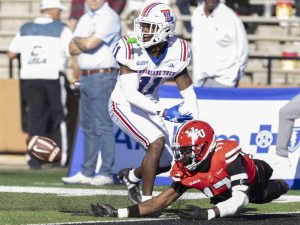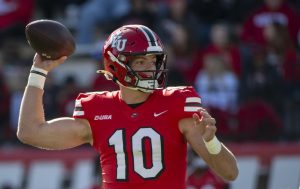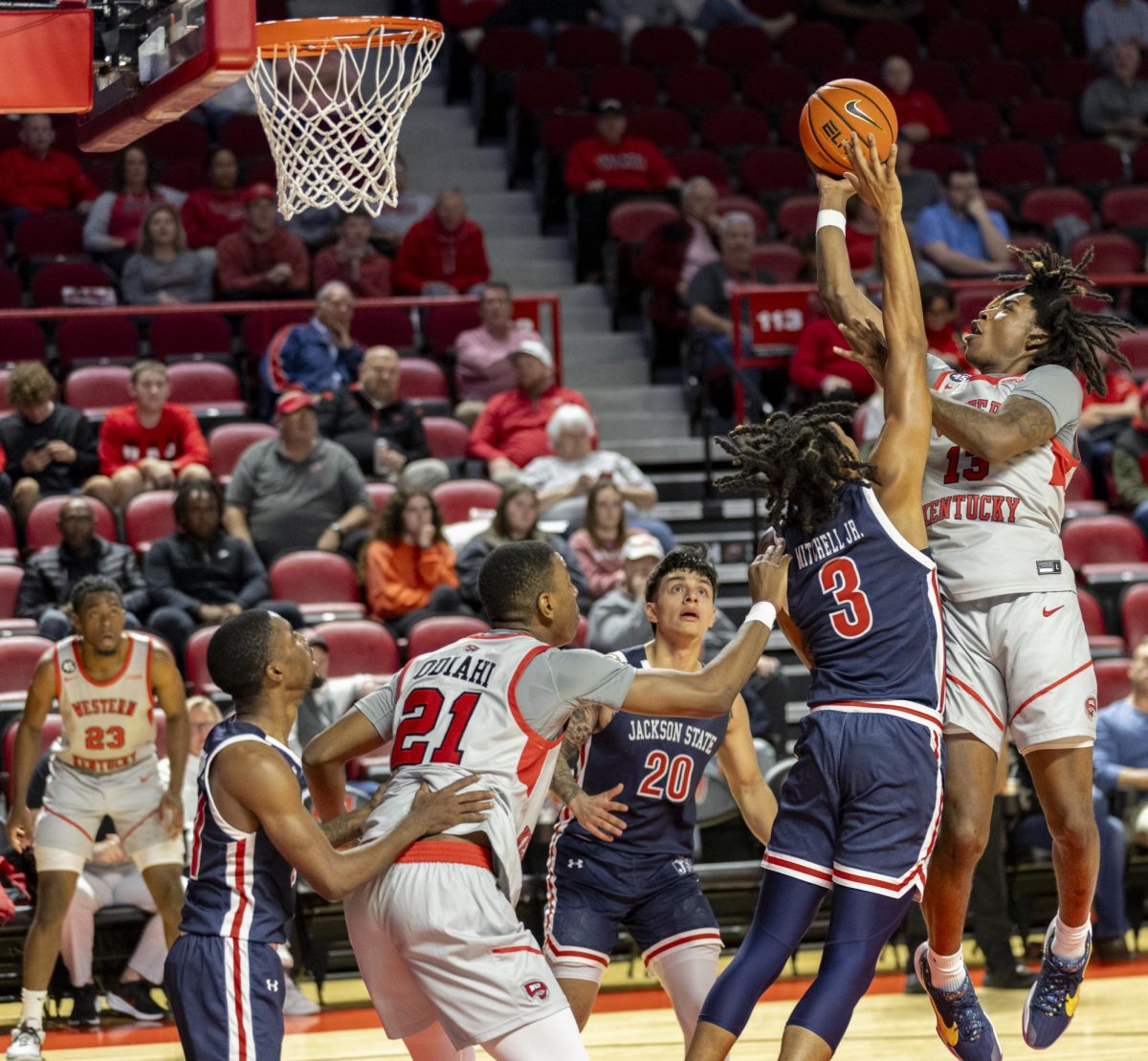Folds to play with Nashville orchestra
November 19, 2010
Ben Folds and the Nashville Symphony Orchestra will be playing a benefit show 7 p.m. Nov. 27 at Andrew Jackson Hall in Nashville. Tickets range from $55 to $105 and proceeds will benefit the Nashville Symphony. Folds talked to the Herald about the show and his new collaborative album with author Nick Hornby.
Herald: This is the only symphony date you have this tour. Why did you decide to do this show?
Folds: Well, the symphony hall was badly damaged in the flood. Having a proper symphony hall is important, and in this case, we have a world-class symphony hall.
It was a wise move to put that symphony hall here, because this is Music City. I think everyone is proud of the country music industry here, but adding to it, having a world class symphony hall and a world class symphony orchestra makes the whole place feel different. I think it’s important, symbolically and culturally, really important.
So when I heard there was $40 million of damage, I figured that might be an opportunity to help rebuild it.
I’m nowhere near the most famous musician in a place like Nashville, but I’ve done so much with symphony orchestras, and I’m really prepared that way. We have charts, I’ve played with the Nashville Symphony Orchestra before, we’re comfortable, we’ve sold it out before, and that’s really all you have to do.
You want to know that that symphony hall is going to be here in 200 years, and then it begins to have some clout and weight. People will read about how it got flooded and nearly destroyed at the beginning of the 21st century.
Herald: You’ve worked with several different orchestras. What is different about Nashville’s?
Folds: Nashville Symphony Orchestra plays in time, because so many of them have done so many sections.
Their sense of time is very friendly for rock artists because they’re listening. They’re just exceptional musicians – we have great musicians here. I’ll say this: you would think every city would have a good orchestra. That is not true. Some of them are little better than a high school band, and some of them are really good, and Nashville is one of the best.
Herald: Will you be playing mostly songs off of your new album, “Lonely Avenue”?
Folds: No. Realistically, and this is maybe why I felt I was cut out for the job, is because it’s per chart – it’s anywhere from a $3,000 to $10,000 investment, just to get them scored, copied, all the stuff you need. And then there are revisions; it’s expensive business.
So we’ve got a vault of like 40 of my songs that are doable with the symphony orchestra, and maybe three are from the new album.
Herald: What’s your favorite song off of “Lonely Avenue”?
Folds: I don’t really ever have a favorite track. And that’s not even a cop-out. I wish like hell I did so I could say when someone asks me that.
What I really love about writing songs is that each song has its sort of superpower, its individual thing, like a person.
It’s what makes it special.
Herald: A lot of your songs are about fictional characters. How much of your writing is autobiographical?
Folds: Well, I write to cause some sort of effect.
Sometimes it’s more effective to develop a character. Not a character who is you and you’re dressing this person up with another name.
I think if you read the lyrics, it would be obvious that I couldn’t possibly be all these people. But, viewing a character in a certain way, sometimes it’s subtle thing, sometimes it’s a gender thing, and sometimes it’s a race thing.
For instance, I have one character who I’ve written where I was dealing with such a heavy topic, surrounded by a lot of heavy societal judgment, that I made him Japanese (chuckle). Because to make him Japanese, the people I felt would be the most judgmental wouldn’t really know if that was OK or not for a Japanese man culturally.
So I could actually have fun with the song and make it light as well at the same time, by removing it from the culture it came from.
Sometimes making it a girl or a boy makes a difference.
People expect autobiography in songs, and that’s one tradition of being a singer/songwriter, is that if you sing about the badlands, you better have been through them before.
If you’re singing about going to Mars, like David Bowie, you don’t really have to have gone to Mars.
If you keep people wondering, that can be interesting, but it can also be distracting. But it will have an effect.
I guess what I’m saying is that I like to write with an effect in mind. I’m not as interested with opening my diary and pouring out my heart to people. Although I think everyone’s got a story, I don’t think everyone’s story resonates, and that goes for me, too. I don’t think all of the stories in my life really resonate.
Herald: Are there any songs like that on the new album?
Folds: Nick did it so well with the song “Levi Johnston’s Blues.” To me, that’s really effective, because he’s found a moment in someone’s life that is growing up on stage in five minutes. Everyone feels like when they’re growing up, that there’s a moment in their life where they had to grow up that day. But not everyone has the opportunity (chuckle), not the opportunity – the misfortune of having it happen in front of the whole world.
Herald: I read somewhere that you tried the concept of having your friends write lyrics to your songs when you were younger.
Folds: Yeah, I’ve done that before.
About five years before I made the first record, “Ben Folds Five,” I was actually living in Nashville. I just went to a couple of friends and told them if they wrote lyrics, I’d write a song to it.
I think I was frustrated because lyrically, it’s really a challenge for me to finish a song. I mean, I’ve finished so many songs now, that I think I can say that and realize that it’s going to be OK. It is a pain in the ass.
If someone else were to write the lyrics, I could write the music so quickly.
But the problem with that was I didn’t like the whole lyrics that much, so I ended up messing with their lyrics quite a bit and changing them.
The song “Alice Childress” – I mean, I totally wrote a new song there. I wrote a song to someone’s lyrics, and then I ended up rewriting almost all of the lyrics too. But the song “Smoke,” off the second record, was written to someone else’s lyrics.
Herald: You wrote “Alice Childress” in Nashville – did the city have any impact on the song?
Folds: Well, I don’t know, probably.
There’s the line about going down to get a beer. That was about walking down the Vanderbilt area to a Mapco to get a Budweiser, and that’s what I did every night when I wrote.
I could afford to get a beer and pack of crackers or something. I would go down and get my beer and snack and come back up to the house and sit with a notebook and write.
Herald: You and Nick Hornby have expressed being big fans of each others’ work. You said in an interview that “A Long Way Down” was your favorite of his novels. Why is that?
Folds: I think it’s really just got a lot of heart, and I think it’s really inventive. A lot of the things that Nick does well come together at once.
That’s what writers do, but he does it so fluidly that it allows you to really get lost in the book.
It’s not really a likely story to happen either.
That’s what he likes to do, to put people into a slightly surreal space so that they can uncover their weaknesses as characters, sort of confess them, and maybe fix them, or not.
Herald: Bassist Jared Reynolds recently left your touring band. Can you talk about that?
Folds: Well, not really; I mean, it’s probably a lot of factors involved. You’d have to talk to him about that.
But mostly, and we’re close friends, so I can tell you most of it is just a change of life. It’s time for him to know that he’s always going to be in town – he’s got kids.
The music business is really unpredictable. I guess he’s reaching that age where he doesn’t want to sit around wondering if he’s going to have more touring or what’s going to happen next. He wanted something solid, so he’s selling shoes.
Herald: Unlike some other celebrity musicians, you tend to stick around after your shows to meet fans. How do you do that again and again?
Folds: I think that we have an exceptionally smart and considerate crowd of people.
The other thing is that sometimes I don’t.
And the reasons I don’t will always be kid-related, like I’ve got to fly home at 4 or 5 a.m. to see my kids, or I’ve got some kind of hellacious press thing to do in the middle of the night.
It makes me feel better when you see people on the television and the news that don’t seem to be very bright, and then you look out into an audience of intelligent people and think, “Oh, it might be all right.”











